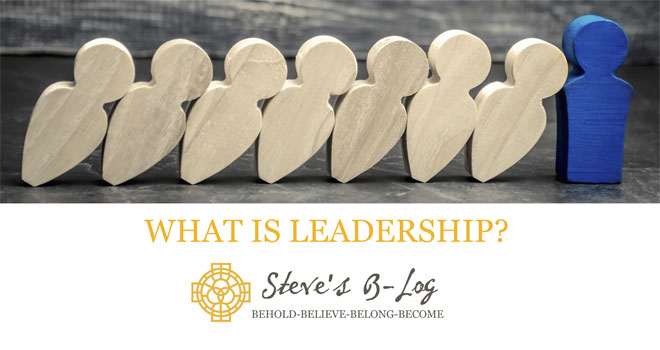
“Is leadership all about title? I don’t think so. Leadership is all about influence. The fact of the matter is, each of us are exercising leadership in some capacity.” – Steve Macchia
One would think there would be general agreement in answer to the question, “What is leadership?”
Perhaps it doesn’t surprise you to note that in fact there isn’t universal or even broadly shared opinions about this important word. We are living in fascinating times.
Is leadership all about title? I don’t think so. Leadership instead is all about influence.
And the exercising of leadership happens every time any group of two or more are gathered together: in each setting there is a leader. This is true at home, at work, in the church and community, in the widest and thinnest of social sectors today.
The fact of the matter is, each of us are exercising leadership as “one who influences,” and therefore it’s wise to consider the definition, philosophy, impact, roles and attributes of Christian leadership.
To some, leadership is an authoritative presence that projects an assertiveness toward others and the work they are called to complete. To others, leadership is the coalescence of varying ideas and personalities around a shared team mission. To still others, leadership is about communicating ideas and concepts and then inviting others to own them for themselves.
The variety of leadership styles is on the increase in this multi-cultural, multi-lingual, multi-ethnic, multi-generational, multi-theological world we inhabit today.
Then, to consider some of the attributes that matter to effective leadership, we begin a laundry list depending on one’s personal conviction about the importance and power of a leader.
Some might list: bold, determined, decisive, convincing, compelling and powerful.
Others might include: collaborative, cooperative, empowering and team-building.
Still others might note: thoughtful, compassionate, humble, gracious and kind. Again, the qualities that matter most to leadership are varied by philosophy, experience, theology and conviction.
Regardless of style and attributes, are there baseline understandings that we share in common? That’s when I find the conversation getting even more engaging, stimulating and much more interesting. Especially when we are talking about Christian leadership, with the triune Godhead and a host of biblical examples provided for us as leadership role models. Even there, as history has proven, the variations of exemplary leadership are all over the map.
So, what are your answers to the questions:
“What is leadership?”
“What style of leadership do you appreciate most?”
“What are the attributes of leadership that evoke your best response?”
I would like to suggest that these questions are worthy of our exploration, especially in the confused-about-leadership times we are living in today. Will you share your answers with us? Comment below; I’d love to hear from you.





